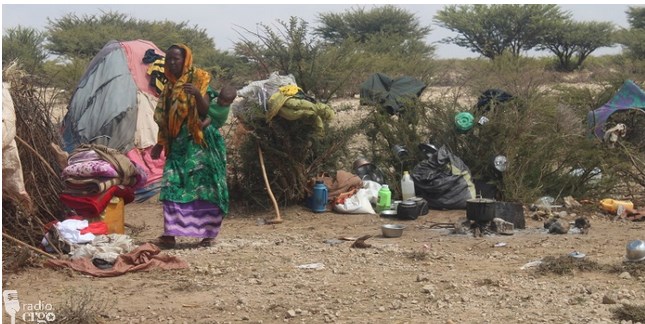
Sunday January 9, 2022

Already battered by climate change-related disasters such as floods and desert locust invasions, Somalia is now in the grip of a deadly drought that is causing massive displacement.
People in several regions of the Horn of Africa country are heading for various towns and cities in search of water and food, further testing the government’s frail response, which includes imposing a state of emergency to tackle the crises.
advertisements
The worst-hit areas include the Bay, Bakol and Gedo regions. Baidoa, capital of the Bay region, houses over 400,000 internally displaced persons (IDPs) and is still receiving hordes of people from different parts of the South West State, including the Bakol region and the towns of Diinsoor and Qasahdhere.The majority of these refugees have lost their only source of income – livestock, South West State Humanitarian Affairs Minister Abdinasir Abdi Arush told Anadolu Agency.
“In South West State, Baidoa is home to over 400,000 internally displaced persons, most of them children and women. The situation is critical,” he warned.
“The drought, coupled with a blockade by al-Shabaab in some parts of the state, is causing a disaster that is beyond our capability to handle. These shelterless people have nothing to eat or drink. We need to help them before it is too late.”
In November last year, Somalia’s Prime Minister Mohamed Hussein Roble declared a state of emergency, calling on the public, religious scholars, businesspeople and the international community to unite and help people in need.
Severe drought is gripping most of Somalia as seasonal rains failed for the third time since late 2020, according to a recent report by the UN Office for the Coordination of Humanitarian Affairs (UNOCHA).
Some 3.5 million Somalis already face acute food insecurity and without urgent and increased support, the situation will likely deteriorate further, the UN agency said.